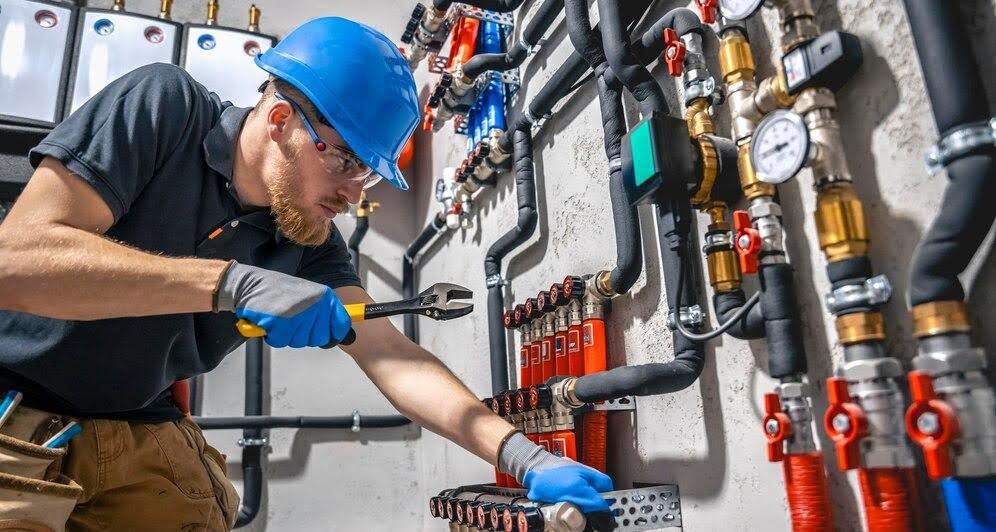Process mechanical installations are the backbone of any efficient construction project, making sure that everything runs like a finely-tuned engine. These installations include systems that handle movement and processing of fluids and gases, which are key in many industrial and infrastructure projects. Without a solid foundation in these areas, projects can face delays and increased costs. By focusing on these installations, builders lay the groundwork for projects that function smoothly and meet all safety and operational standards.
Challenges abound in mechanical installations. Builders must navigate issues like site conditions, material selection, and the integration with existing systems. However, with careful planning and execution, these challenges can be turned into opportunities for efficiency and innovation. Addressing these considerations head-on ensures that projects not only meet but exceed expectations, staying on time and within budget. This proactive approach results in a more successful project that’s beneficial to everyone involved.
Assessing Project Requirements
The first step in any successful process mechanical installation is understanding what the project requires. This involves diving into the specifics of what the client needs and what the project demands. Initial planning plays a pivotal role in this stage. It’s like drawing up a roadmap; you need to know your destination before setting out. If you know where you’re headed, you can map out the best route to get there.
Key points to consider include:
– Client Needs: Understanding what the client envisions for the project is crucial. This makes sure that the final output aligns with what they expect.
– Site Specifications: Every site comes with its own set of challenges and requirements. Knowing the site well helps anticipate potential obstacles.
– Integration: Considering how new installations will fit with existing structures or systems is necessary. This ensures everything works together seamlessly.
By taking the time to assess these requirements early on, teams can avoid costly missteps and communicate more effectively with clients. It sets the project up for a smoother execution and often leads to better outcomes, meeting both the practical demands and the client’s vision.
Choosing the Right Materials and Equipment
Selecting the proper materials and equipment for process mechanical installations is like choosing the right tools for a job. The choices made at this stage can significantly impact the project’s overall success and longevity. Reliable, high-quality components reduce risks of failure and help ensure the system operates efficiently throughout its lifecycle.
Consider these factors when selecting materials:
– Quality: High-grade materials ensure durability and reduce maintenance needs.
– Compatibility: Ensure materials can integrate with existing systems.
– Environmental Factors: Account for conditions such as temperature and humidity, which might affect material performance.
Choosing the right components not only enhances the efficacy of the installations but also optimizes their performance over time. With well-considered selections, builders can avoid unexpected breakdowns and extend the life of the systems, benefiting from fewer repairs and less downtime.
Ensuring Proper Installation Techniques
Getting the installation techniques right is key for any process mechanical system. It’s like following a recipe to the letter to produce a perfect dish. Each step, from setup to execution, requires precision and awareness. By adhering to best practices, you guarantee that the systems work efficiently and safely. It’s crucial to follow the manufacturer’s guidelines closely, as these provide a clear path towards seamless operation and longevity.
Some steps to consider include:
– Thorough Training: Ensure that all workers have the necessary training to handle the installations correctly. This helps in preventing common errors that might arise from inexperience.
– Proper Tool Usage: Use the right tools for each component. Adopting the correct tools ensures parts fit where they should, reducing risks of future malfunctions.
– Documentation: Keep detailed records of all installations for future reference. This documentation can serve as a guide for maintenance and any future upgrades.
By applying these practices, you create a stable foundation for the process mechanical installations. Such stability contributes to a higher level of overall project quality while minimizing the potential for unplanned disruptions.
Regular Maintenance and Inspections
Once process mechanical systems are installed, keeping them running smoothly requires regular upkeep. Think of it as the regular servicing a car needs to keep it running well on the road. Maintenance not only extends the lifespan of the equipment but also ensures its efficient operation over time.
Why is regular maintenance so important?
– Prevents Major Failures: Regular checks can catch minor issues before they become costly repairs.
– Increases Efficiency: Well-maintained systems perform better, conserving energy and reducing costs.
– Enhances Safety: Regular inspections ensure that the systems comply with all safety standards, protecting both workers and the environment.
Consider setting up a maintenance schedule that fits the specific needs of each system, ensuring that inspections happen regularly. Such planning prevents potential issues and ensures that the system runs optimally without unexpected hiccups.
Bringing It All Together
With all the moving parts in a construction project, giving attention to process mechanical installations can really pay off. By methodically assessing project requirements, choosing the right materials and equipment, following proper installation techniques, and scheduling regular maintenance, you set the stage for success. Thoughtful planning and execution resonate well throughout the project’s lifecycle.
Being proactive in the early stages helps build strong foundations, ensuring that every part of the project functions as intended. The end result is a project that not only meets but often exceeds expectations. Focus on strong collaborations and clear communication, fostering an atmosphere where everyone works towards the common goal of quality and reliability. With this approach, the benefits extend well beyond the project’s completion, creating long-term value and satisfaction.
Maximize the efficiency of your process mechanical installations by partnering with Industra Construction Corp., the leader in transforming challenging projects into seamless successes. Our expertise in industrial construction ensures that every detail, from assessing project requirements to choosing high-quality materials, is handled with precision. Ready to elevate your project outcomes? Let us provide you with exceptional solutions that meet your operational and safety standards.

















